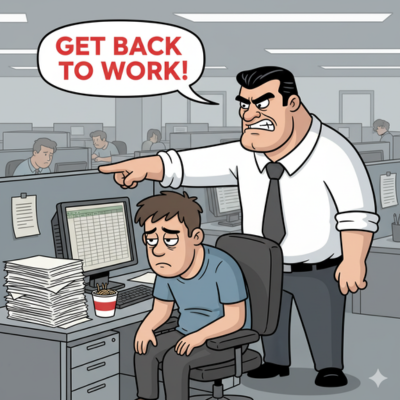Are Mini-Retirements And Sabbaticals Part Of The New Normal?
I’m familiar with mini-retirements and sabbaticals.
I’m sure that many people in the FI community are also familiar with mini-retirements and sabbaticals.
What I haven’t heard until fairly recently is this concept being discussed, let alone implemented, by everyday people outside of the FI community.
So it was very surprising when I recently talked to another parent at my son’s school and he mentioned that his wife planned to take a leave of absence soon. I was delighted, to say the least, because this was the last subject I expected to come up in our conversation. I admit that I don’t know the family extremely well, but I’m fairly certain they aren’t part of the FI community.
Thus it made me wonder, are mini-retirements and sabbaticals now part of mainstream culture and the current zeitgeist? Is taking extended time off work becoming more acceptable as a new normal?

Defining Mini-Retirements and Sabbaticals
For those unfamiliar with a “mini-retirement” or “sabbatical”, these are names for specific types of leaves of absence from employment. In my mind there is so much overlap between the two that I commonly consider them one and the same, using both terms interchangeably to simply mean “taking a break from work”.
But for those who like more precise definitions…
- Sabbaticals are typically employer-sponsored breaks, lasting anywhere from a few weeks up to a year, with the expectation of returning to the same job. These are often paid (but can be unpaid) and have historically been used for professional development, research, travel, or personal growth.
- Mini-retirements are self-directed breaks from work, lasting a month or longer, usually without a guarantee of returning to a previous role or employer. These are typically self-funded and while mini-retirements can be used for professional development, they are also implemented for more varied reasons such as focusing on well-being, family, travel, learning new skills, pursuing a new hobby, or even for a career pivot.
Mini-retirements and sabbaticals are both great ways to take a temporary pause from lengthy careers to recharge & regroup. Additionally, some people may use these breaks as practice or as a trial-run of (early) retirement to experiment with what sort of life they may lead in the future. Still others may even use these breaks as a complete alternative to early retirement, with the goal of “retiring often” to avoid burnout.
Not Really An Option For Me
Way back in my day (and I’m only in my mid-40s mind you), taking extended time off work was not really a thing. While it wasn’t strictly prohibited or even impossible, it was certainly frowned-up and considered a major workplace faux pas. In fairness, this way of thinking may have just been prevalent within my specific career field (engineering) and specific industry (aerospace) at the time, but nonetheless it was the reality within which I had to live.
Note: For additional context, when my first child was born in 2011 I was only allowed to take 2 weeks off work – 1 week using my own accrued vacation time and 1 week using sick time that my manager “graciously granted me”. Compare this to nowadays where my former employer & former state where I lived at the time both offer up to 12 weeks of paid paternal leave.

Beyond my own opportunities (or should I say my own NON-opportunities) for taking time off, I wasn’t really even familiar with the concept until more recently. At the time I had definitely never encountered the term “mini-retirement”. What little I did hear of “sabbaticals” was always associated with college professors temporarily stepping away from teaching to focus on research or writing an academic paper.
Although it was extremely rare, one of my co-workers did actually take a sabbatical back in the early 2010s when he was in his early-to-mid 30s. I didn’t know him that well, so I’m not sure exactly what motivated him, but I do remember thinking that it was extremely awkward to see him leave and even wondered if he was setting himself up for career-suicide.
When he returned to work 6 months later, I learned that he had spent the time riding his motorcycle from California all the way to the southernmost tip of South America and even ended up hitchhiking to Antarctica on a boat. He shared so many great stories and came back so energized that the unpleasantness I initially felt turned into sheer exuberance that he was able to experience a trip-of-a-lifetime opportunity.
My co-worker’s experience successively planted a seed in my mind that perhaps there was actually something to these mini-retirements & sabbaticals after all.

Picking Up Steam
Following about a decade of not giving it much additional thought, I once again encountered this concept in the early 2020s thanks to Jillian Johnsrud. In the FI community Jillian has been a huge proponent of mini-retirements and perhaps the loudest voice to bring awareness to this idea. She has been espousing the benefits of mini-retirements for years and has all sorts of resources for those who want to dive into way more detail, including a workbook, podcast, and even a recently released book.
Over the ensuing years I met an increasing number of people who actually took time off work, so I knew it was a real thing that seemed to be gaining in popularity. The only catch was that everyone I had met was at a FI event such as EconoMe, CampFI, or Camp Mustache. This led to my initial assumption that although mini-retirements were becoming more prevalent, perhaps it was a solely self-contained movement within the FI community.
However, in the past year or so I’ve started to see an increasing number of stories and come across more chatter that is making me wonder if this concept has finally started seeping into the mainstream…
It seems like once every few weeks an article will pop-up in my newsfeed about someone taking a temporary leave from work. (The huge caveat here is that my newsfeed may be biased already since I tend to get shown a lot of Yahoo Finance & Business Insider articles). I’ve also heard accounts anecdotally from neighbors, relatives, and even “friends of friends”, which all seemed plausible but still left me with a hint of skepticism.
But reality seemed to truly hit during that conversation at my son’s school – I had finally met someone first-hand in “the real world” that was planning to take a leave of absence. Perhaps my initial assumption was incorrect and mini-retirements & sabbaticals were becoming more prevalent across the board, not just amongst the FI community.

But Why
So what’s behind the increasing momentum behind mini-retirements & sabbaticals? While I’m not exactly sure (and of course I’m not an expert anyways), a few different contributing factors come to mind.
- Evolving concept of work/life balance. When I started my career over 20 years ago, the workforce was dominated primarily by Baby Boomers. This generation valued long hours, commitment, and dedication to their jobs, with many viewing work as a primary life purpose. Over the years as additional generations have come onto the scene, there has been a shift towards prioritizing flexibility, autonomy, and well-being, with a strong emphasis on mental health and avoiding burnout. These younger generations also view work more transactionally, seeking value alignment and integration rather than just a paycheck.
- A higher priority on living life for “today”. COVID-19 caused a lot of people to reevaluate & reprioritize their lives to focus on what’s truly important to them. It made many of us realize that nothing is guaranteed due to an unknown future. Because of this, more people are starting to live for today and have stopped avoiding highly-valued activities such as spending more time with family (especially elderly parents or school-age kids), traveling, changing careers, etc. Taking time off work to pursue these activities is well-worth the trade-off for many.
- More flexible & acceptable work options. Another change spurred by COVID-19 was the rise in remote work and hybrid work situations. Almost 6 years later, while many companies have reversed policy and started bringing workers back into a physical office, there is still a strong desire for flexible work scenarios. This desire is not only based on work location, but also work schedule, meaning 5-day/40-hr workweeks are no longer the only option.
A Little Too Late For Me
For those wondering if I’ve ever taken a mini-retirement myself, the answer is no. Unfortunately I learned about this concept towards the tail end of my career and at the time I was already nearing early retirement.
Now would I have taken time off work if I had known about mini-retirements earlier? Perhaps, but it’s honestly hard to say.
I’ve always had a tendency for “front-loading the sacrifice”, meaning that I’ve always put hard work & unpleasant tasks up front so that I could get those out of the way first, delaying gratification, and ultimately leaving more of the fun/leisurely tasks for the end. I don’t know if I would’ve been able to take a mini-retirement and fully appreciate it, because I would’ve felt like I had unfinished business on my path to early retirement.
But then again, who knows?
Not Just Another Passing Fad
As Baby Boomers have started to retire and our society deals with the aftereffects of COVID-19, it seems like there is already a greater awareness and more acceptance of mini-retirements & sabbaticals. I hope this momentum continues and doesn’t turn into simply another passing fad like bell bottom jeans or Beanie Babies.
While mini-retirements may not be for everyone, I think they’re still a great idea for many people. Instead of rushing to the finish line of full-blown retirement or risking burnout, why not take an opportunity to slow-down a little along the way?
As the great philosopher Ferris Bueller once said on his day off… “Life moves pretty fast. If you don’t stop and look around once in a while, you could miss it.”

Links/Resources
- Definition of “Mini-Retirement”
- Definition of “Sabbatical”
- Jillian Johnsrud
- Retire Often workbook
- Retire Often podcast
- Retire Often book
- EconoMe Conference
- CampFI
- Camp Mustache
- Earn & Invest, “Front-Load The Sacrifice”
Reader Questions
- Have you taken a mini-retirement or a sabbatical yourself or do you know someone personally that has taken one? If so, how was the experience?
- If you’ve never taken a mini-retirement or a sabbatical, would you ever consider taking one in the future?
Leave your answers or comments below – or email us directly at info@epicfinancialjourney.com

